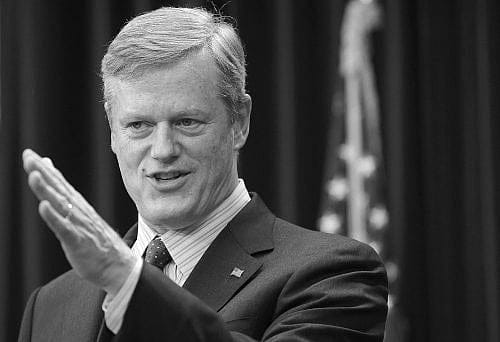Charlie Baker’s Dispiriting Drift Left as Strategic Planning

For many Bay State Republicans, Governor Charlie Baker's administration is the advancement of a dishonest marketing campaign: Baker and Switch. (Run as a Republican, cozy up to Democrats, disown the Republican Party.) Rejected Republicans, perhaps feeling duped from day one, should take note. Baker's dispiriting drift to the left may just prove to be a stroke of genius for reelection in 2018. Ironically, it's a plan without Republicans — the abandoned, fatherless children of Massachusetts politics.
The plan was actually hatched well before President Donald Trump skunked The Party of Ronald Reagan. As Baker's Senior Advisor Tim Buckley told The Atlantic, the governor's campaign in 2014 focused from the beginning on "showing he could say 'screw you' to the Republican Party." A political throw-down, those words have proven to be prophetic but also strategic.

